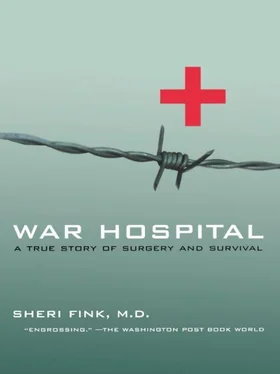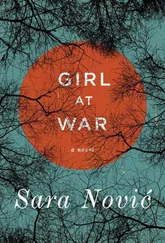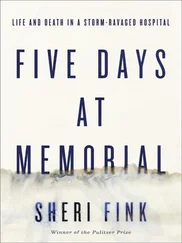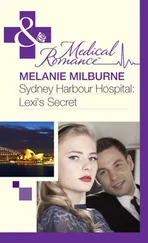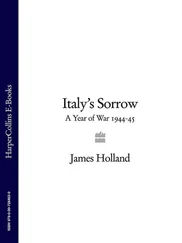Gillian Biddulph and the International Committee of the Red Cross archives, photo, video, and print libraries; Massaoutis Panayiotis and the World Health Organization archives; and Gregory Hess and the World Health Organization.
Hvala puno to those who helped with translation, context, and more in Bosnia, Serbia, and the United States including Izabella Gavrić, Iskra Čucković, Sanel Hadžiahmetović, Nermin Zukić, Melika Horozić, Dr. Anja Tomić, Ulvija Tanović, Damir Arsenijević, Rijad Hasić, Naida Begeta, Vedad Lihovac, Neven Luledvija, Senada Krešo, Boris Knežević, Zoran Ivančić, Darko Radošević, Elvira Jašareviš, Besmir Fidahić, and Vanja Savanić.
Thanks to those friends and acquaintances who provided places to rest my head and suitcase along with valuable conversation and encouragement while working on this book, including: Adila and Jasmina Viteškić, Bisera and Mesud Imamović and Anna Husarska in Sarajevo; Čevala and Himzo Hasić, Doug Ford, Mary Ellen Keough, Catriona Palmer, Laurie Vollen and Physicians for Human Rights in Tuzla; Brian Ruane and the OSCE in Srebrenica; the Lazić family in šekovići; Dr. Lazar Prodanović in Zvornik; Maja Vrhovac in Banja Luka; Sanja Ilić and Zoran, Stefan, and Oki in Belgrade; Pakize Kaleci (with Eric Dachy) for her great cooking in Brussels; Brad Blitz in London; Sharon Silber, David Weiss, George Musser, Talia Schaffer, and Douglas Rothschild in New York; Glenn Ruga, Barbara Ayotte, and Nan Fornal in Boston; Brent Phillips and Anna for a brief, welcome respite in the Algarve; Fokko De Vries, Sanja Percela, Yannick Du Pont, Gaby Post, and Natascha Jerkovic in Amsterdam; Margaret Samuels and Tom Parker in the Hague; the Ulens family in the Netherlands; Gil and Judy Kulick in Maryland; Vladimir and Svatava Mach in Prague; Dr. Simon Mardel and his wife in Barrow in Furness; Thierry Pontus and his wife in Belgium; and Lee and Irv Zelitzky in San Francisco.
A huge thanks to my best friend in Bosnia, Alma šahbaz, and my best Bosnian friends in the United States, Amna, Memin, Anesa, and Fatih Tokmo, for their incredible support and for making me fall even more in love with their country.
I’m deeply indebted to those who supported this work with grants, beginning with Dr. Tom Raffin and the Center for Bioethics at Stanford University, which supported my first trip to Bosnia. Dr. Harvey Weinstein, Eric Stover, and Gilles Perress of the University of California at Berkeley Human Rights Center helped me develop the initial idea for a book on Bosnian war medicine and provided the means, with a generous grant from the Herbert and Marion Sandler Family Foundation, to spend a year in the Balkans (you were right, guys, it did take more than a year to research and write this book). If it were not for their initial interest and willingness to gamble their resources on an untested writer, this book would not exist. Thank you from the bottom of my heart. A grant from the U.S.-Mexico writer’s exchange program (supported by the Writer’s Room of New York, U.S. Embassy in Mexico, Fondo Nacional para la Cultura y las Artes, and Sociedad General de Escritores de Mexico) provided two months of very helpful semi-isolation at La Casa del Escritor in Mexico City, where the first draft of this manuscript was completed. Thanks to the staff of La Casa as well as to staff members, colleagues, and backers of the Writer’s Room of New York and the (unaffiliated) Writer’s Room of Boston, where I wrote at all hours without distraction.
I’m deeply grateful for the generous time and constructive criticism of those who read and commented on early drafts of this manuscript: Jack Hart, editor of the Oregonian , Harriet Washington of Harvard’s Department of Medical Ethics, Herschel Fink (thanks Dad!), Christopher Hitchens, Krim Delko, Linda Pollack, and Steve Walker. Thanks, too, to John and Lynn Franklin for providing years of WriterL, no matter where in the world I was, and for brainstorming with me in a “stuck” moment at the 2002 Nieman narrative journalism conference, graciously hosted by Mark Kramer.
To my buddies from the U.S. army base in Sarajevo, Tony Castillo, Andy Fishman, and Jeffrey Abramowitz, thanks for looking out for me, taking me to the PX, and defusing the “mine” we found on Mjedenica. Thanks to Mirza Muminović and other student members of BoHeMSA at the University of Sarajevo Medical School for organizing the conference that inspired my interest in this subject.
The support and encouragement of friends, fellow writers, and other colleagues has been enormous. Thanks to Fred Abrahams, Patrick Ball, Marc Bartolini, Hamida and Ken Begović, Dino Besić, Vicky Bruce (a.k.a. fairy godmother), Darcy Cosper, Thomas Cushman, Susie Devenyi, Manuela Dobos, Nathaniel Eaton, Leslie Fratkin, Lisa Gervin, Rita Giglio for always believing in me, Tom Gjelten, Daniel Hoffman, Paul Keegan, Ken Kim, Sara Kurlich, Chris Momenee, Katie Orenstein, Barry Reese, Mike Rothenberg, Joe Sacco, James Sanders, Lee and Pip Sanders, Robert Sapolsky, Cindy Scharf, Bob Silk, Ulrike Sujansky, Stacy Sullivan, Kate Tedesco, Teun Voeten, and Sharon Webb. Thanks to Dr. Michael Thaler and Dr. Eliott Wolfe for being wonderful mentors and to leaders of International Medical Corps (Nancy Aossey, Kevin Noone, Martin Zogg, Stephen Tomlin) and Physicians for Human Rights (Len Rubenstein, Susannah Sirkin, Holly Burkhalter) for the opportunity to work and share ideas with you.
I’m indebted to several excellent past editors, including Sally Cheriel at the Oregonian , Pete Gavrilovich at the Detroit Free Press , and writing teachers Marc Niesyn at the University of Iowa and Carl Djerassi at Stanford.
Finally, I have been blessed with a perfect editor in Kate Darnton at PublicAffairs. Her sharp insights have strengthened this book tremendously, and I’m forever appreciative of her patience. She, and PublicAffairs’ generous and supportive publisher, Peter Osnos, have repeatedly touched me with their enthusiasm for and belief in the importance of the Srebrenica doctors’ story. I am deeply grateful to them and to the many other editors and staff members of PublicAffairs, and to my wonderful agent, Peter McGuigan, who worked very hard to make this book a reality.
“Sheri Fink is… a physician and a superb chronicler. In War Hospital she takes us from the Caucasus into the Balkans… Through her artistry, she catches the thoughts and emotions of various actors involved in that bloody theater, especially physicians: the majority of them men who, under complex motivations that range from adventurism to patriotic sentiment and idealist self-abnegation, come into the war zone at great personal peril. The detailed notes at the end of the book attest to Fink’s impeccable and comprehensive research. Her scrupulous regard for historical truth and attention to detail make War Hospital an engrossing conspectus of a part of the recent Balkan war…”
—The Washington Post Book World
“[Dr. Sheri Fink’s] story is an antidote to the abstract calls of glory, honor and heroism, words that can fill hearts with pride but that sound hollow in crowded, bloodied hospital corridors. Yet she reaches beyond even these themes and confronts the role of humanitarian assistance in wartime, raising the larger question of what must be done in the face of genocide… Dr. Fink brings us into this world gone mad, where everyone laps up the depraved and sickening brew of war. But her real goal is to make us face our own culpability. We are guilty of genocide because we did not intervene. Neutrality, too, can be a crime. This is not a morality tale for others, but for ourselves.”
—The New York Times
“A moving account”
—Good Housekeeping
“ War Hospital is an insightful account of the complexity of armed conflict and humanitarian assistance and a must-read for anyone interested in understanding the personal tragedy of war.”
Читать дальше
